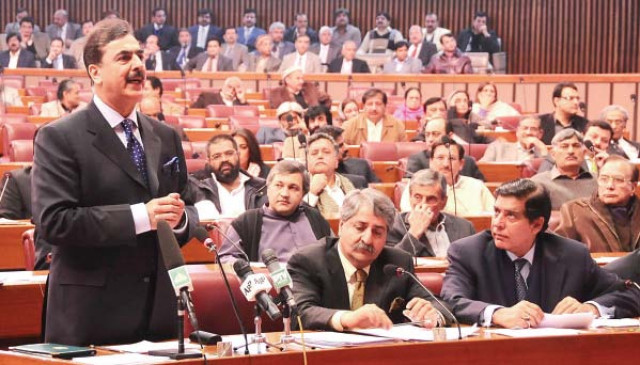Reduction in petroleum prices: Government succumbs to pressure
PM announces reversal of petroleum price hike; US Secretary of State Hillary Clinton calls the decision a 'mistake'.

In a desperate move expected to temporarily tame a brewing political crisis, the government on Thursday withdrew the recent increase in petroleum prices.
The government apparently succumbed to pressure by opposition groups as Prime Minister Yousaf Raza Gilani announced in the National Assembly that his government had decided to reverse last week’s decision.
Though a top opposition leader called it “nobody’s victory or defeat,” the decision appeared to be the first setback for the government and the first signs of weakness since it lost its majority in the parliament after losing support from two allied parties on various grounds.
Gilani hailed it as ‘sagacity’ of the political leadership that helped his administration to take what would have otherwise been an impossible decision.
However, US Secretary of State Hillary Clinton said it was a “mistake” for Pakistan to reverse fuel price increases.
Opposition Leader Chaudhry Nisar Ali Khan immediately welcomed the decision in a move that brought down inflated political temperatures after a week of chaotic bickering, which appeared to be posing existential threat to the government.
It was Nisar’s Pakistan Muslim League-Nawaz (PML-N) party that put the government on a three-day notice for agreeing to a set of demands, including an immediate withdrawal of petroleum price hike.
“The path of consensus leads to betterment. Let’s tread it together so that we could fight those ridiculing politicians,” Nisar said in a statement that signaled his party’s willingness to give the government some breathing space.
Gilani spoke to the house after his economic team briefed parliamentary leaders of all political parties on the current economic situation of the country, with special reference to petroleum prices.
It was perhaps for the first time in recent history that an official decision was reversed after pressure by opposition parties and the public.
The government had to face a barrage of criticism from political opponents across the country when it raised prices for different petroleum product by up to nine per cent.
Last week, the government’s largest ally in the centre, the Muttahida Qaumi Movement (MQM), decided to join the opposition after months of political wrangling. The party cited the price rise as the main reason for quitting the coalition.
Gilani said a parliamentary committee will be formed to make suggestions about how the government can deal with increasing petroleum prices in international markets.
Published in The Express Tribune, January 7th, 2011.



















COMMENTS
Comments are moderated and generally will be posted if they are on-topic and not abusive.
For more information, please see our Comments FAQ